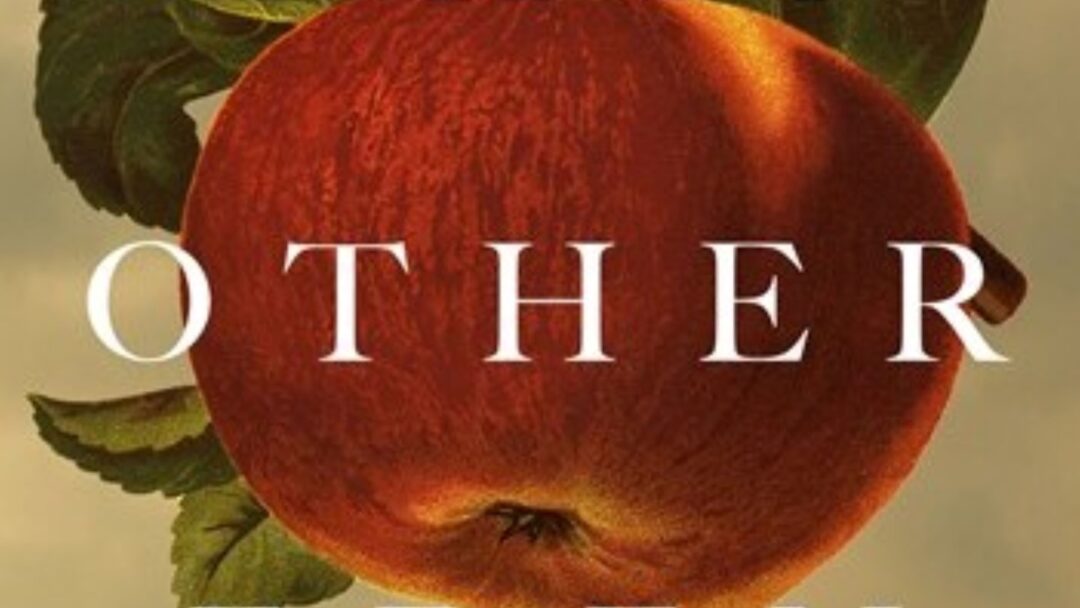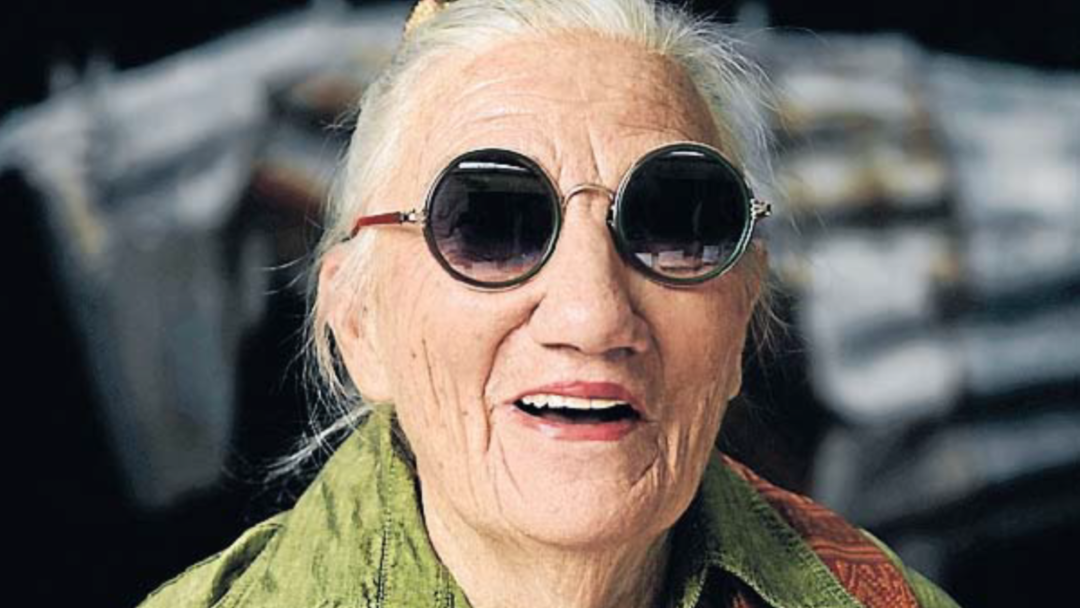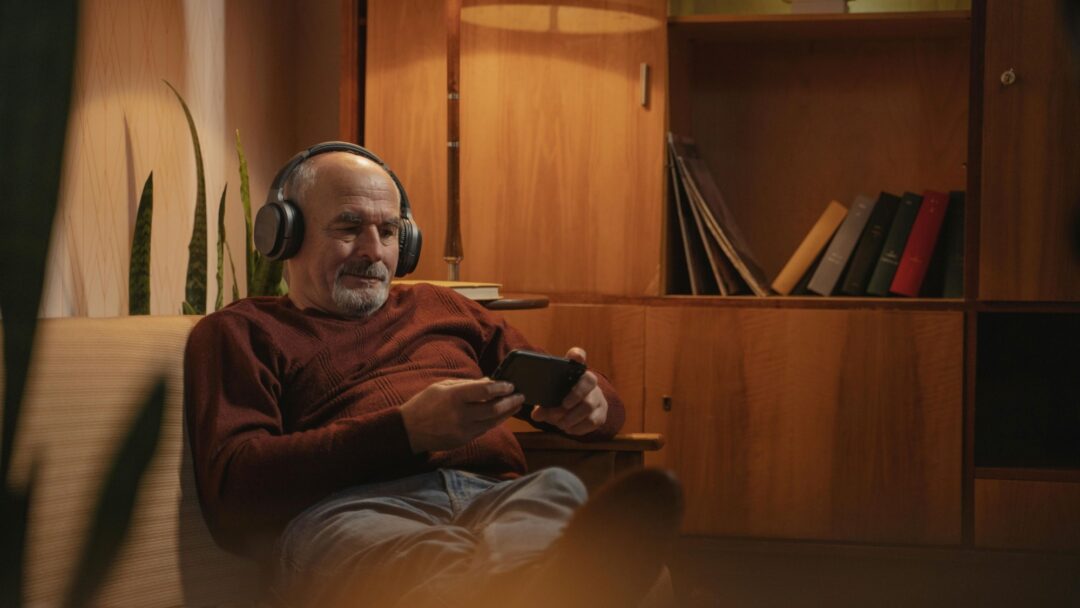Audio
Reconciliation Week and Reader Recommends
Hear This by
Vision Australia3 seasons
31 May 2024
27 mins
Celebrating National Reconciliation Week with books from Vision Australia Library... plus some user favourites.
![Poster on zigzag background of stripes of purple, black and orange with indigenous design, overlaid with large white words: NOW MORE THAN EVER - and smaller underneath, NATIONAL RECONCILIATION WEEK 2024... 27 MAY - 3 JUNE... [phone and emails contacts] and event logo.](https://powered-media-prod.s3.ap-southeast-2.amazonaws.com/transformed/_bannerMedium/Reconciliation-Week-2024-poster.jpg)
Hear This is a weekly presentation from the Vision Australia Library service, bringing you up to date with what’s on offer for people with blindness or low vision - with spoken excerpts.
Host Frances Keyland also presents reviews and Reader Recommends.
Thnis episode celebrates National Reconciliation Week with shared histories and experiences, and also features some books recommended by Vision Library users.
00:09UU
Take a look.
00:24S1
Hello and welcome to Hear This. I'm Frances Keyland and you're listening to the Vision Australia radio program Hear This, which is about the Vision Australia library collection. Today we're celebrating Reconciliation Week with some really outstanding books in the library collection. We also have a couple of reader recommended titles that I hope you enjoy. From the 27th of May to the 3rd of June, it is National Reconciliation Week, which is the time for all Australians to learn about our shared histories, cultures and achievements, and to explore how each of us can contribute to achieving reconciliation in Australia. There are lots of resources if you want to visit reconciliation.org. So that's reconciliation.org.au ... lots of reading lists and different resources. Australia-wide events as well that you may be able to attend.
The theme for 2024 this week is Now More Than Ever and is a reminder to all of us that no matter what the fight for justice and the rights of Aboriginal and Torres Strait Islander people will and must continue. If you are a library member, you'd be able to access by having it downloaded onto your device or if you stream the library books and periodicals and magazines and podcasts. So yes, you'd be able to listen to the wonderful Melbourne Writers Festival event that happened here at Vision Australia Library in Melbourne, with award winning author Alexis Wright talking about her book praiseworthy. If you haven't had a listen to that, and if it's not automatically something you've subscribed to, the In Conversations that Vision Australia library are regularly hold. See if you can grab a hold of that. That's Alexis Wright talking as part of Melbourne Writers Festival for this year.
And some of the books that we'll highlight today... The first one is by Bruce Pascoe and his book Black Duck. This is written in conjunction with Lynn Harwood. When Dark Emu was adopted by Australia like a new anthem, Bruce found himself at the centre of a national debate that often focused on the wrong part of the story. But through all the noise came black Duck Foods, a blueprint for traditional food growing and land management processes based on very old practices. Bruce Pascoe and Lynn Harwood invite us to imagine a different future for Australia, one where we can honour our relationship with nature and improve agriculture and forestry, where we can develop a uniquely Australian cuisine that will reduce carbon emissions, preserve scarce water resources and rebuild our soil. Bruce and Lynn show us that you don't just work country. You look, listen and care.
It's not black duck magic. It's the result of simply treating Australia like herself from the aftermath of devastating bushfires and the impact of an elder's death, to rebuilding a marriage and counting the personal cost of starting a movement, Black Duck is a remarkable glimpse into a year of finding strength in country at Yungaburra. Let's hear a sample of Black Duck by Bruce Pascoe and Lynn Harwood. It's narrated by Bruce Pascoe.
03:50S2
An owl at nightjar is more butterfly than bird, more spirit than being, less weight than a handful of grapes. Pale fairy of the night. I hear their soft cheering almost every night, but can count the times I have seen one on the fingers of two hands. It is like seeing a large moth fluttering silently in the dark. Our people say they hold the woman's spirit. Their eyes are huge, Doe like, but that description belies the huge responsibility. I turned the corner onto the Gipsy Point Road on a September day at three in the morning, and there she was on the road in front of me, those huge eyes questioning my appearance at that hour, the hour of true dreams or restless wakefulness. I stopped and considered my response. You're back, she said. And that's how it felt. I opened the door a fraction so that she could hear the click, and it was enough for her to flutter into the melaleucas beside the road. I shut the door and drove on carefully to make sure I could avoid a collision with any startled roo or wallaby.
At the end of the road, the little town nestled against the dark water where three great salt rivers meet Wallagaraugh, Genoa and Marengo. Is it a town if it's without a shop of any kind? The sleeping houses were unconcerned by semantics. On the bank of the river. There were 30 or more kangaroos. I nodded. Yes, that's about how I remembered it. I thought the property would be on my right, and so I parked the car and stepped out to prove the theory.
05:52S1
And that there was a sample of Black Duck. Bruce is spelt [spells author's name]. And you'll be able to find the book searching that way. But it's also written with Lynn Harwood. And that book goes for eight hours and 20 minutes. We also have Fox by Bruce Pascoe, shark convincing ground learning to fall in love with your country. The little red yellow black book. An introduction to indigenous Australia. Fog a dox dark emu loving country which is a guide to sacred Australia and country. Future fire future farming. If you want to explore any of the other titles, just ring the library or email them and they'll be able to help you.
The next book in recognition of Reconciliation Week is Nardi Simpson's Song of the crocodile, Dunmore The Gateway to Happiness. The sign taunts a local fool into feeling some sense of achievement, some kind of end, that you have reached a destination in the very least. Yet, as the sign states, Dunmore is merely a gateway, a waypoint on the road to where you really want to be. Dunmore is the home of the Belimel family, three generations who have lived in this gateway town. Race relations between indigenous and settler families are fraught, though the rigid status quo is upheld through threats and soft power, rather than the overt violence of yesteryear.
As progress marches forwards, Dunmore and its surrounds undergo rapid social and environmental changes. But as some things change, some stay exactly the same. The Belimel family are watched and sometimes visited by ancestral spirits and spirits of the recently deceased, who look out for their descendants and attempt to help them on the right path. When the town's secrets start to be uncovered, the town will be rocked by a violent act that forever shatters a century of silence. Let's hear a sample of song of the Crocodile by Nardi Simpson. It's narrated by Nardi Simpson.
S3
The sign at the entrance of town is neither informative nor welcoming. To see it emerge crystallise from the heat of the horizon is to have travelled a measureless distance over infinite time. The journey always begins prettily. The glory of a new dawn shines light around bends of peaceful ranges, pink and orange, dazzling as it rises, warming your back, sending you on your way. Curves of rock swathed in twist. And you dance on hips and belly, shoulders and neck of the sleeping mountain woman beneath. As you continue, a ridgeline crests, then opens. You tiptoe along it. Ty is tickling her spine until a steep descent to cleared encourage green opens into paddock and field. The land at her base Rocky and rich. Both signs of fortune and luck.
Knife. Sharp ranges and distant hills beckon. You continued towards them until eventually they dissolve into hints of ripple and crease. Finally, you hit the flat. And scrub and flat and scrub continues to be bland and harsh and unforgiving. Wide, bare earth. Spare space. Forgotten land. Black dirt meets red earth and turns metal. Hard hot springs and dried lakes hide motionless, waiting for reason to wake and flow. But this you cannot see. The scrub hides her secrets well. You travel on and on and on. Further still numbed by endless cooler bars and tufts of grass and itchy blue blanket sky. Only when boredom, exhaustion and blindness take hold does life rise from the plains.
10:17S1
That was song of the Crocodile by Nardi Simpson. Nardi is spelt [spells author's name]. That book goes for 12 hours and 20 minutes. Nardi Simpson is a Ualarai storyteller and performer. She lives in Sydney. She's more known, maybe for her musicianship. She began her artistic journey as a songwriter and performer with a vocal duo called Stiff Gins, and this has seen her travel both nationally and internationally for over 23 years, releasing four albums, two signal singles and countless compilations during that time. Song of the crocodile is her first novel, and if you go to her website, which is Nardi Simpson One word.com, you'll be able to read more about her. And also, she has another book that's going to be released called The Bellbird. Spelt [spells title], one to look out for.
And the next book is by Tony Birch. Its title is Women and Children. It's 1965, and Joe Clunie is living in a working class suburb with his mum Marion and sister Ruby, spending his days trying to avoid trouble and the nuns at the local Catholic primary school. One evening his aunty Una appears on the doorstep, distressed and needing somewhere to stay as his mum and aunty work out what to do, Joe comes to understand the secrets that the women in his family carry, including on their bodies. Let's hear a sample of Women and Children by Tony Birch. It's narrated by Tamala Shelton.
12:07S4
The nuns who ran Our Lady's school shared the same first name Mary. The head of school was Sister Mary Josephine, followed by her deputy sister Mary Agnes. Next in line was the head of junior school, Sister Mary Bernadette. And on it went. At the commencement of each school year, the nuns paraded into the school hall, each wearing a starched white habit with a set of black rosary beads and silver crucifix drawn around the waist. With the arrival of the colder months of the year, the starkness was discarded for a dull brown colour, more appropriate for a school existing perpetually in the shadows of the church of the same name next door.
The church and school had been built in the late 19th century. Indestructibly from slabs of bluestone rock. Our Lady's Church sat in the middle of an inner city suburb with a reputation for hard men and their crimes, from robbery and menace on the street to family violence behind closed doors. It was also a suburb of sectarian boundaries, with the Catholic community in no doubt that they lived under siege by Protestant leaders who dominated local government and business. Police were more likely to be Catholic, which produced mutually beneficial relationships between local crime bosses and the constabulary.
Religious dedication was largely an affair of women and children. Most men never bothered with the conversation with God, leaving it to their families to attend mass and pray on their behalf for their numerous sins, at least until the men aged and became more concerned about the afterlife awaiting them. It was only then that they attempted a peaceful exchange with God. The doors to the church had been shaped from lengths of heavy timber and were secured with brass hinges and locks. The building resembled a jail more than a house of worship.
14:10S1
And that was Women and Children by Tony Birch. Tony is spelt [spells author's name]. That book's a short one. Goes for... five hours and 50 minutes. Women and children was published in 2023 by the University of Queensland Press. From a review in the Guardian newspaper on Friday the 17th of November 2023 from Joseph Cummins. He calls it a new high for the master craftsman. In his beautiful and forthright book, Birch brings a tender simplicity to his characters in a story about the trauma of violence and the power of family. And I also encourage you to explore his other works in, his other works available in the library. There's quite a few, and he has been called the master of the Australian short story, a modern master of the Australian short story.
And a shout out to to Tamala Shelton, the narrator of Tony Birch's book. There she is, a proud Bundjalung and Lamalama actor, writer and activist. She started acting as a teenager, starring in shows such as Upper Middle Bogan, Nowhere Boys and Clever Man, and she's since been recording a multitude of First Nations audiobooks. So if you do like her narration, you can't search for the narrator through the current library catalog that's available. But, ring the library and ask them to do a search for other books that... Tamala Shelton [spells name]. Find out what other books she's narrated. I had lovely reader recommended recently. But I forgot to download it. I keep on thinking I have downloaded it, and then I get to the studio and I'm like, where is it? And it's not there?
So I will have a recommendation from Bob next week. But it also reminded me that Bob recommended a book last year. By Jenny Erpenbeck, Go Went Gone. Jenny Erpenbeck recently, very recently won this year's International Booker Prize for her book Kairos, which we don't have yet in the library. So I thought I would go back to this early recommendation. Go Went Gone. The novel tells the tale of Richard, a retired classics professor who lives in Berlin. His wife has died and he lives a routine existence until one day he spies some African refugees staging a hunger strike in Alexanderplatz. Curiosity turns to compassion and an inner transformation as he visits their shelter, interviews them, and becomes embroiled in their harrowing fates.
Go Went Gone is a scathing indictment of Western policy towards the European refugee crisis, but also a touching portrait of a man who finds he has more in common with the Africans than he realises. Let's hear a sample of Go Went Gone by Jenny Erpenbeck. It's a translation from Susan Bernofsky, and it's narrated by Andrew Wiseman.
17:31S5
During the next two weeks, Richard sees to the new door for the shed. He has the flu in the fireplace, repaired. He transplants the peonies, varnishes, the boat saws, deals with all the unopened mail that's piled up over the course of the summer. He goes once to physical therapy and three times to the movies. Every morning he reads the newspaper over breakfast, as always. Every morning he drinks tea, Earl grey with milk and sugar, and eats one piece of bread with honey and one with cheese, sometimes with a slice of cucumber. But only on Sundays does he add a soft boiled egg. He can take his time every day now, but he still only wants an egg on Sundays. The way he's used to it, it's a novelty to be able to linger over his tea as long as he likes.
And so he now reads certain articles all the way through that he might once have skimmed. He'd really like to know what's become of the ten men from Alexanderplatz. But he doesn't see anything about that. He reads that off the coast of the Italian island of Lampedusa. 64 of 329 refugees drowned when their boat capsized, including some from Ghana, Sierra Leone and Niger. He reads that somewhere over Nigeria, a man from Burkina Faso fell from a height of 10,000ft after stowing away in an aircraft's landing gear. He reads about a school in Kreuzberg that's been occupied by a group of black Africans for months. Reads about Oranienplatz, where refugees have apparently been living in tents for a year now.
Where exactly is Burkina Faso? The American vice president recently referred to Africa as a country, even though, as the article about this faux pas pointed out, there are 54 African countries. 54. He had no idea. What is the capital of Ghana? Of Sierra Leone or Niger?
19:34S1
And that was Go Went Gone by Jenny Erpenbeck. Jenny is spelt [spells name]. And that book goes for nine hours and 30 minutes. I had to listen to this book myself and I really loved it. It's very simply written, um, it's a gentle book about quite astoundingly, as a synopsis says, harrowing situation. Jenny Erpenbeck did a lot of research and a lot of interviewing of refugees for the book. I think that ethical stance shines through the book, and it's lovely to see a character such as Richard grow throughout the book. And you also learn a lot about Berlin's history, which I also found fascinating. So that's go Went Gone by Jenny Erpenbeck, and congratulations to her for winning this year's International Man Booker Prize for Kairos.
The next book was recommended by Amy, and I have actually seen people reading this book, and it's got a, you know, rather beautiful cover. It's called The Salt Path by Raynor Win. It's a nonfiction book. Just days after Rain or Wind learns that moth, her husband of 32 years, is terminally ill, their house and farm are taken away along with their livelihood. With nothing left and little time, they make the brave and impulsive decision to walk. The 630 miles of the sea swept South West Coast Path, from Somerset to Dorset through Devon and Cornwall, carrying only the essentials for survival on their backs. They live wild in the ancient, weathered landscape of cliffs, sea and sky. Yet through every step, every encounter and every test along the way, their walk becomes remarkable and life affirming journey.
Powerfully written and unflinchingly honest, The Salt Path is ultimately a portrayal of home, how it can be lost, rebuilt and rediscovered in the most unexpected ways. Let's hear a sample of the salt path by rain or wind. It's narrated by Rayner Win.
21:53S6
In early August. Standing on the side of the road in Taunton are rucksacks by our feet. We were finally truly homeless. I'd never been homeless before. I travelled, lived in a van for weeks on end, but this was different. Travelling in the knowledge that you have a point of return gives you the will to keep moving away. There's always a door you can return to and drop your bag, even if that door is the thing you're escaping from. But the feeling that day was entirely different. There was no door. The space I inhabited in that moment was the safest, securest place I had, and I didn't want to move.
Shall we find the bus to Minehead again? There was nothing else to do. That was why we were there, to give ourselves a reason to keep moving, to find a way to shape our future. But I didn't expect to pay £10 each in bus fares to get to Minehead. Added to the diesel for the drive to Somerset Food in a motorway service station and a couple of bottles of wine. To say thanks for keeping a van and my little red purse was looking thinner, much thinner. We had £50 left but that was going to be enough. We'd have £48 deposited in the bank every week. Enough. Sitting on the back seat of the bus, I started to feel calmer. Maybe it was being contained by the bus, but he even felt a small pulse of excitement.
We were heading north through Somerset. We could fool ourselves that we were on a day trip to the seaside and got out with chocolate and bananas. Where you're heading? There. South West Coast path, I bet, as to where you're staying. It's your first night. Lost to an incredibly loud American voice filled the bus from a tiny, prim woman with curly brown hair and a very serious jacket with lots of really useful pockets. That's right. We're starting out today. She scuttled towards the back of the bus with her equally small partner. He was clearly heading out on safari in identical jacket and trousers that had even more pockets bulging with important looking things.
24:03S1
And that was The Salt Path, a sample of, and Rayner is spelt [spells name]. Since that book, there's been two more added to that list. Rayner's long life partner is still with us, so the Wild Silence is part two of the Salt Path series. In the second part, they have a chance to breathe life back into a beautiful but neglected farmhouse nestled deep in the Cornish hills. And then the third part of the series is Landlines. They set out on another, hopefully healing walk. The Cape Wrath Trail is over 200 miles of grueling terrain through Scotland's remotest mountains and lochs.
I've had a read of the first one, The Salt Path, and there are warnings because it deals with incredible financial stress. They they lose their home. In the beginning, a moth is diagnosed with a degenerative, incurable condition. Yeah, the heartache of the whole situation... is really well written from such a personal point of view.
Thank you so much for joining us on here this today. And my name is Frances Keyland, and you've been listening to the Vision Australia library radio program Hear This on Vision Australia Radio. If any of those books have taken your fancy or if you would like to recommend books, recommendations are always welcome. Send an email or give a call to Vision Australia Library. So the phone number is 1300 654 656. That's 1-300-654-656 or email is library@visionaustralia.org - that's library at Vision Australia - dot - org.
And just a reminder it's not just the audio books. There's also magazines. There's also newspapers whether it's your local newspaper or the national newspapers. And there's also reference and research tools. The Vision Australia Library in Books has a collection of over 45,000 titles, and some of the magazines are Australian Geographic, Australian Women's Weekly, Choice Magazine, Gardening Australia, New Scientist and I remember when I worked at the library, people would ask for that. Do you have New Scientist? Rolling Stone magazine is available. Time Australia. Wheels, and Braille 8000 plus Braille and E Braille titles 1200 plus music Braille pieces. And there are children's picture books with clear Braille overlays.
And you can search what is available in all of these formats by simply going to the website visionaustralia.org/services/library/collection. So that's Vision Australia org forward slash services forward slash library forward slash collection. I hope you have a lovely week and we'll be back next week with more Hear This.
Continue listening

On Hear This, latest books in the Vision Australia library. This edition, award-winning Oz fiction.
Australian fiction
Hear This by Vision Australia
4/8/2023
•28 mins
Audio

Books from the Vision Australia library - this episode featuring memoirs and family histories.
Family histories
Hear This by Vision Australia
11/8/2023
•27 mins
Audio

This edition: Michael Parkinson remembered and an assortment of latest books from the Vision Australia library.
Vale Michael Parkinson
Hear This by Vision Australia
18/8/2023
•26 mins
Audio

Hear This reviews latest books from Vision Australia library - this edition starting with two Booker Prize aspirants.
Booker Prize hopefuls
Hear This by Vision Australia
25/8/2023
•27 mins
Audio

Hear This interviews Tracey Chevalier, author of Girl with a Pearl Earring.
Girl with a Pearl Earring
Hear This by Vision Australia
8/9/2023
•28 mins
Audio

Hear This samples a variety of audio books from the Vision Australia library.
Top picks from audio books
Hear This by Vision Australia
15/9/2023
•28 mins
Audio

Events and activities at Vision Australia library - and latest picks from its books.
Community engagement
Hear This by Vision Australia
22/9/2023
•27 mins
Audio

This edition of Hear This from the Vision Australia library opens with a discussion of banned books.
Banned books
Hear This by Vision Australia
6/10/2023
•28 mins
Audio

Hear This features latest books and events at the Vision Australia library.
Latest events and books
Hear This by Vision Australia
13/10/2023
•27 mins
Audio

Latest books from the Vision Australia library - including childhood tales and a John Grisham thriller.
Childhood tales and a Grisham thriller
Hear This by Vision Australia
20/10/2023
•28 mins
Audio

Latest books from the Vision Australia library - including a novel by Australian Sam Drummond.
Oz writer Sam Drummond
Hear This by Vision Australia
3/11/2023
•27 mins
Audio

Books from the Vision Australia library - including a memoir by a friend of Anne Frank.
Anne Frank's friend
Hear This by Vision Australia
10/11/2023
•28 mins
Audio

Book reviews and excerpts from Vision Australia library - including a wartime struggle for survival.
Survival in wartime
Hear This by Vision Australia
24 November 2023
•27 mins
Audio

A special seasonal edition reviews Christmas murder stories available from Vision Australia library.
Yuletide Homicide
Hear This by Vision Australia
8 December 2023
•28 mins
Audio

Veteran talking book reader Tony Porter reviews his many voices.
The many voices of Tony Porter
Hear This by Vision Australia
5 January 2024
•27 mins
Audio

What's new in Vision Australia library of Braille and audio books - including new Australian works.
New Australian books
Hear This by Vision Australia
12 January 2024
•28 mins
Audio

Vision Australia librarian talks of coming events and latest books for people with blindness and low vision.
Coming events and new books
Hear This by Vision Australia
26 January 2024
•28 mins
Audio

Review of books from the Vision Australia library - from a broad international range.
Books from Japan, US, Australia and Sweden
Hear This by Vision Australia
2 February 2024
•27 mins
Audio

New books in the Vision Australia library - from E.L.Doctorow to Alan Bennett.
Reasons Not to Worry, Wild Things... and Alan Bennett
Hear This by Vision Australia
9 February 2024
•28 mins
Audio

Latest events and books from Vision Australia Library, featuring its Community Engagement Co-ordinator.
Vision Library latest with Leeanne
Hear This by Vision Australia
16 February 2024
•28 mins
Audio

Features Jamie Kelly of Vision Australia Library, updating us on its website catalogue. And other new books.
Vision Australia library online, and Jelena Dokic
Hear This by Vision Australia
23 February 2024
•29 mins
Audio

New books in the Vision Australia Library - in this edition, books about paintings.
Books about paintings
Hear This by Vision Australia
1 March 2024
•26 mins
Audio

From the Vision Australia Library, women's memoirs on International Women's Day.
Women's memoirs on IWD
Hear This by Vision Australia
8 March 2024
•28 mins
Audio

Coming events and books at Vision Australia Library for people with blindness or low vision.
Coming events at Vision Library - and a Kerouac classic
Hear This by Vision Australia
15 March 2024
•29 mins
Audio

Latest books from Vision Australia Library - this week, some top Oz and worldwide novels.
Top Oz and world novels
Hear This by Vision Australia
29 March 2024
Audio

Coming events at Vision Australia Library in connection with the Melbourne Writers' Festival.
Melbourne Writers' Festival
Hear This by Vision Australia
5 April 2024
•28 mins
Audio

Coming events and new books at the Vision Australia Library for blind and low vision people.
Event update and more new books
Hear This by Vision Australia
12 April 2024
•29 mins
Audio

How printed works are brought to life as audio books in the Vision Australia Library.
Audio book narrators
Hear This by Vision Australia
19 April 2024
•28 mins
Audio

ANZAC Day edition of this series from the Vision Australia library for people with blindness or low vision.
ANZAC sniper
Hear This by Vision Australia
26 April 2024
•28 mins
Audio

From the Vision Australia library: a South African childhood, AI issues and an American First Lady.
Apartheid, AI and Michelle Obama
Hear This by Vision Australia
3 May 2024
•27 mins
Audio

Forthcoming Vision Library events including those connected with the Melbourne Writers' Festival.
Melbourne Writers' Festival and Vision Library events
Hear This by Vision Australia
10 May 2024
•28 mins
Audio

Murder mystery novels available from the Vision Australia library are reviewed and sampled.
Murder mysteries
Hear This by Vision Australia
24 May 2024
•27 mins
Audio

Celebrating National Reconciliation Week with books from Vision Australia Library... plus some user favourites.
Reconciliation Week and Reader Recommends
Hear This by Vision Australia
31 May 2024
•27 mins
Audio

Reader Recommends and crime fiction from the Vision Australia library for blind and low vision people.
This Other Eden... and some other readin'!
Hear This by Vision Australia
7 June 2024
•29 mins
Audio

Vision Library's coming community events and latest books for people with blindness or low vision.
Coming events and latest books
Hear This by Vision Australia
14 June 2024
•29 mins
Audio

Books in Vision Australia library for people with impaired vision - this time on the theme of Darkness.
Darkness
Hear This by Vision Australia
21 June 2024
•29 mins
Audio

New books in Vision Library including the Wikileaks founder's autobiography.
Julian Assange - by the man himself
Hear This by Vision Australia
28 June 2024
•29 mins
Audio

Community events soon to happen at Vision Australia Library for people with blindness and low vision.
Coming events at Vision Australia Library
Hear This by Vision Australia
5 July 2024
•28 mins
Audio

Two well-known authors open the latest look at new publications in the Vision Australia Library.
Hilary Mantel, Bret Easton Ellis and more
Hear This by Vision Australia
19 July 2024
•27 mins
Audio

Vision Library series, this episode features new Australian crime novels written by women.
Australian sisters in crime
Hear This by Vision Australia
26 July 2024
•28 mins
Audio

Latest publications in the Vision Library, starting with a biography of John Farnham.
He's the Voice
Hear This by Vision Australia
2 August 2024
•27 mins
Audio

Latest reviews and readings from publications in the Vision Library for people with print disabilities.
Race, history and Black Ducks
Hear This by Vision Australia
9 August
•28 mins
Audio

Books from Vision Library reviewed include a Julie Andrews memoir, Guardian newspaper picks and more.
Julie remembers and The Guardian recommends
Hear This by Vision Australia
30 August 2024
•27 mins
Audio

An Australian author discusses her works, plus reviews of other books in the Vision Library.
Jane Rawson - author
Hear This by Vision Australia
6 September 2024
•28 mins
Audio

Update on forthcoming events and available publications at the Vision Australia Library.
What's On at Vision Australia Library
Hear This by Vision Australia
13 September 2024
•27 mins
Audio

Accessible Vision Library books reviewed, including murder mysteries and award nominees.
Mysteries and prize contenders
Hear This by Vision Australia
20 September
•27 mins
Audio

Reviews and events at Vision Australia Library to mark World Sight Day, October 10.
World Sight Day and Barbra Streisand
Hear This by Vision Australia
4 October 2024
•28 mins
Audio

What's on in the Vision Library, and the works of Ira Levin and Han Kang.
Library events, Ira Levin and Han Kang
Hear This by Vision Australia
11 October 2024
•28 mins
Audio

Vision Library publications reviewed - opening with some tributes to writers passed.
Tributes, and more
Hear This by Vision Australia
18 October 2024
•28 mins
Audio

Reviews and readings from Australian, British and US books in the Vision Australia Library.
Tomorrow, Questions, Mistresses and Murder
Hear This by Vision Australia
25 October 2024
•28 mins
Audio

Reviews and readings from books available in the Vision Australia Library.
From Australian thrillers to the US and South Africa
Hear This by Vision Australia
1 November 2024
•28 mins
Audio

A wide range of books in the Vision Australia Library are reviewed and sampled.
Leonard Cohen, ghosts and Broken Hill
Hear This by Vision Australia
8 November 2024
•28 mins
Audio

Events and publications at Vision Australia Library for people with blindness or low vision.
Vision Library: what's in and what's on
Hear This by Vision Australia
15 November 2024
•28 mins
Audio

Interview with an award-winning author about her life and work... plus more publications in the Vision Australia Library.
Jacqueline Bublitz
Hear This by Vision Australia
22 November 2024
•28 mins
Audio

Vision Australia Library for people with vision impairment updates its coming events and latest publications.
Coming soon to the Vision Library
Hear This by Vision Australia
13 December 2024
•28 mins
Audio

Christmas-themed books in the Vision Australia Library for people with vision impairment.
Christmas offerings
Hear This by Vision Australia
20 December 2024
•28 mins
Audio

New books for 2025, fiction and non-fiction - vale Leunig!
Fiction and non-fiction for the New Year
Hear This by Vision Australia
3 January 2025
•27 mins
Audio

Reviews of varied books from the Vision Library - some centring on radio stations or radio plays.
Radio drama
Hear This by Vision Australia
10 January 2025
•29 mins
Audio

What's On at Vision Australia Library - and latest publications accessible to people with blindness and low vision.
Coming events in 2025 - and latest publications
Hear This by Vision Australia
24 January 2025
•28 mins
Audio

Writings on Marianne Faithfull and award-contending works in the Vision Australia Library are reviewed.
Vale Marianne... and award-nominated books
Hear This by Vision Australia
31 January 2025
•28 mins
Audio

Special guest highlights interesting events in libraries around the country... and some new books.
What's new in libraries around Australia
Hear This by Vision Australia
7 February 2025
•27 mins
Audio

Accessible publications chosen for February 14: Library Lovers' Day, Valentines Day and World Radio Day.
Library Lovers' Day
Hear This by Vision Australia
14 February 2025
•29 mins
Audio

An update on Vision Australia Library's coming events and latest blind-accessible books.
Coming events and new books
Hear This by Vision Australia
25 February 2025
•29 mins
Audio

Reviews of accessible books including a John Steinbeck classic, and news of a forthcoming writers' festival.
Brimbank and Steinbeck
Hear This by Vision Australia
28 February 2025
•29 mins
Audio

Coming courses and other events at Vision Australia Library - and latest accessible books.
Courses, events and latest publications
Hear This by Vision Australia
14 March 2025
•28 mins
Audio

Special with interviews and readings at a writers' festival and writing competition in Melbourne.
Brimbank Writers' and Readers' Festival and Micro-fiction Competition
Hear This by Vision Australia
21 March 2025
•30 mins
Audio

An interview with an Australian woman writer and reviewer, about her favourite female authors.
Women authors with Stella Glorie
Hear This by Vision Australia
28 March 2025
•29 mins
Audio

Reviews and excerpts from accessible works in the Vision Australia Library, starting with a new Australian novel.
Reader recommends a Deal
Hear This by Vision Australia
4 April 2025
•27 mins
Audio

Vision Australia Library brings news of accessible events at the forthcoming Melbourne Writers' Festival.
Melbourne Writers' Festival 2025
Hear This by
11 April 2025
Audio

Vision Australia Library pays tribute to the late Australian author of the Miss Fisher mysteries and more.
Vale Kerry Greenwood
Hear This by Vision Australia
18 April 2025
•28 mins
Audio

ANZAC Day special featuring reviews and short readings from books about the First World War.
Reading about World War 1
Hear This by Vision Australia
25 April 2025
•28 mins
Audio

Reviews and readings of user favourites in Vision Library - including an Antarctic adventure.
Reader recommended
Hear This by Vision Australia
2 May 2025
•28 mins
Audio

What's accessible in the Vision Australia Library - including new books by Kate Grenville and Eric Idle.
Always look on the bright side of... time and place
Hear This by Vision Australia
9 May 2025
•29 mins
Audio

First part of an interview with an Australian author, military historian and war veteran.
Barry Heard's true tales of war (part 1)
Hear This by Vision Australia
16 May 2025
•28 mins
Audio